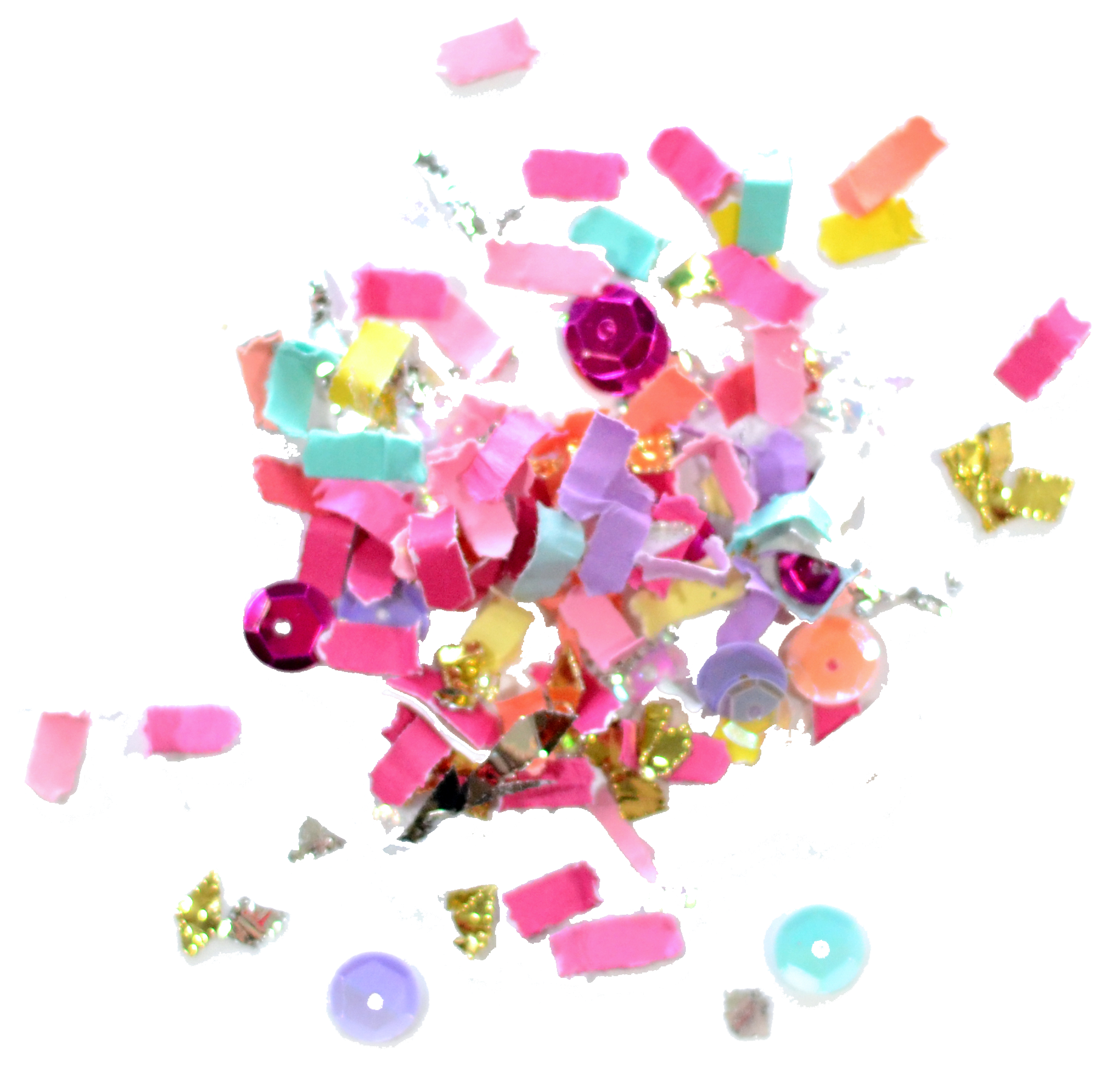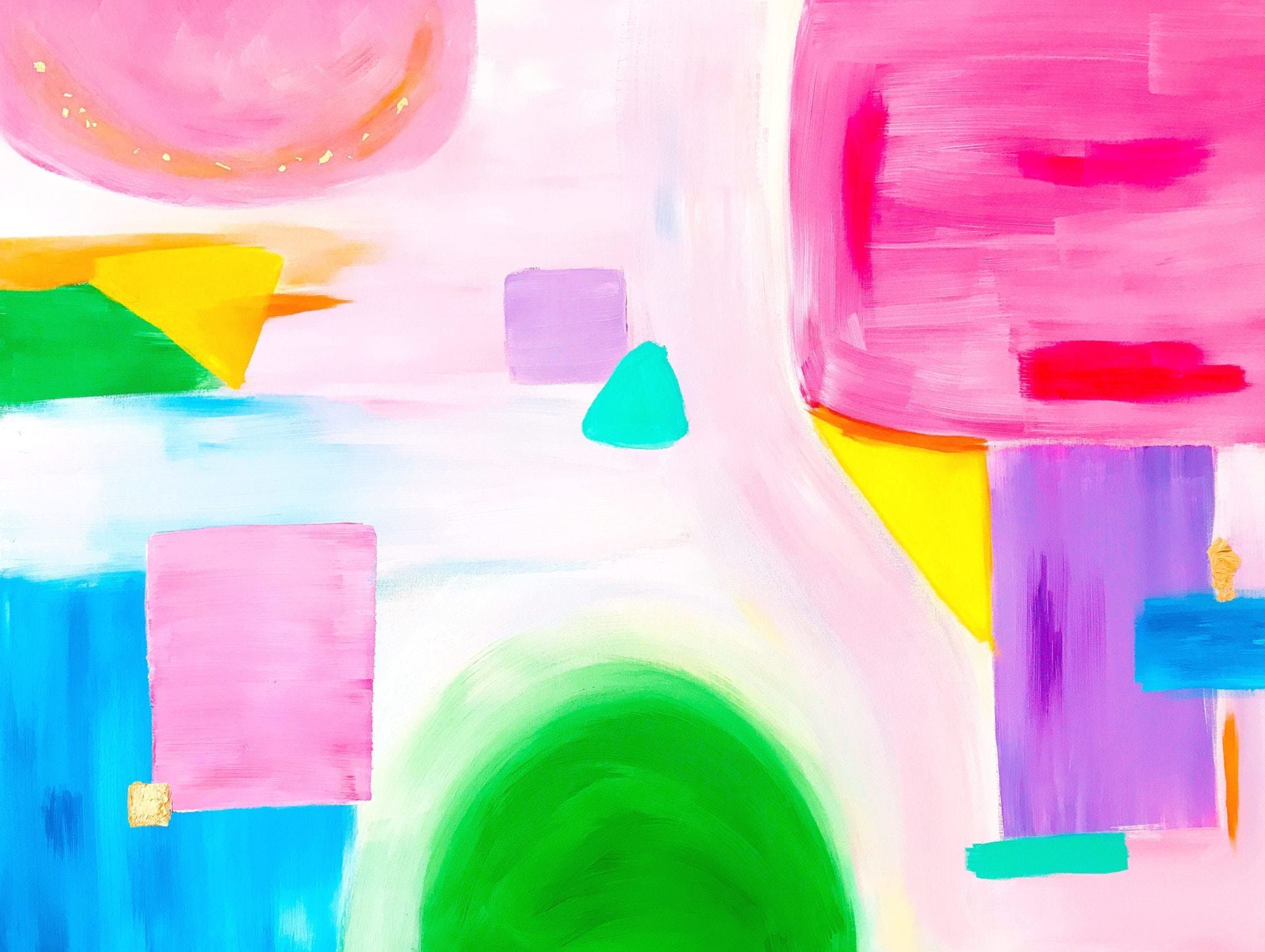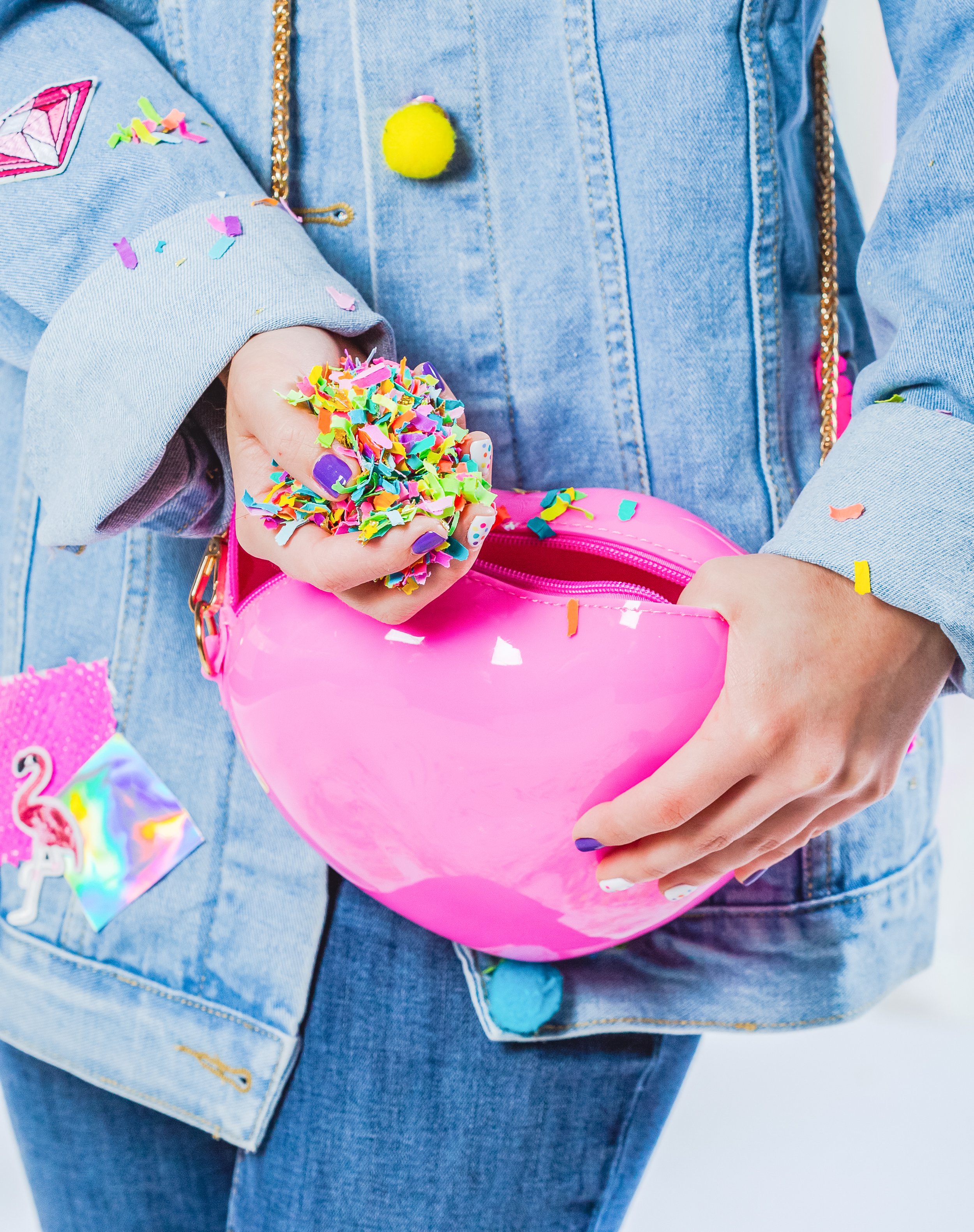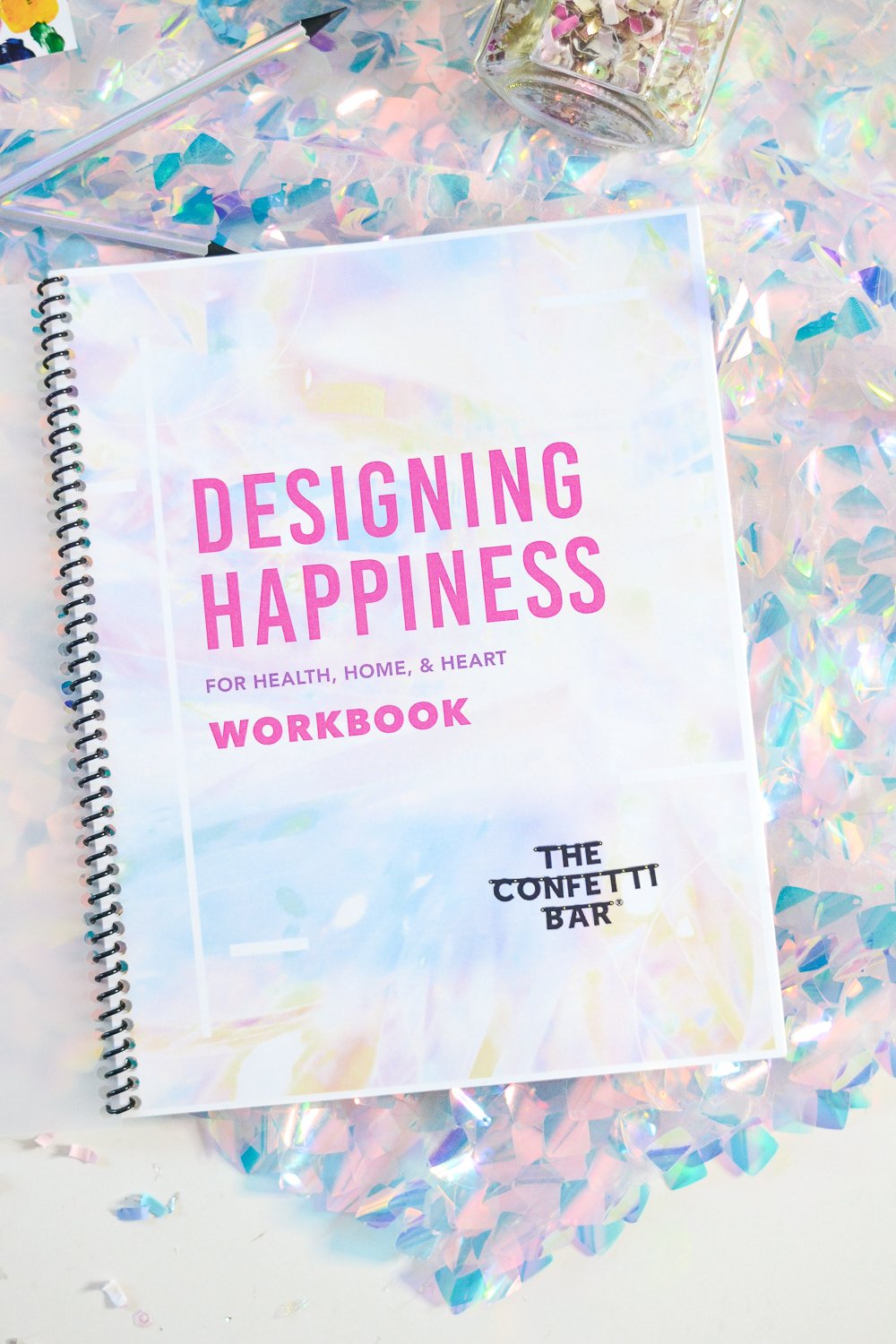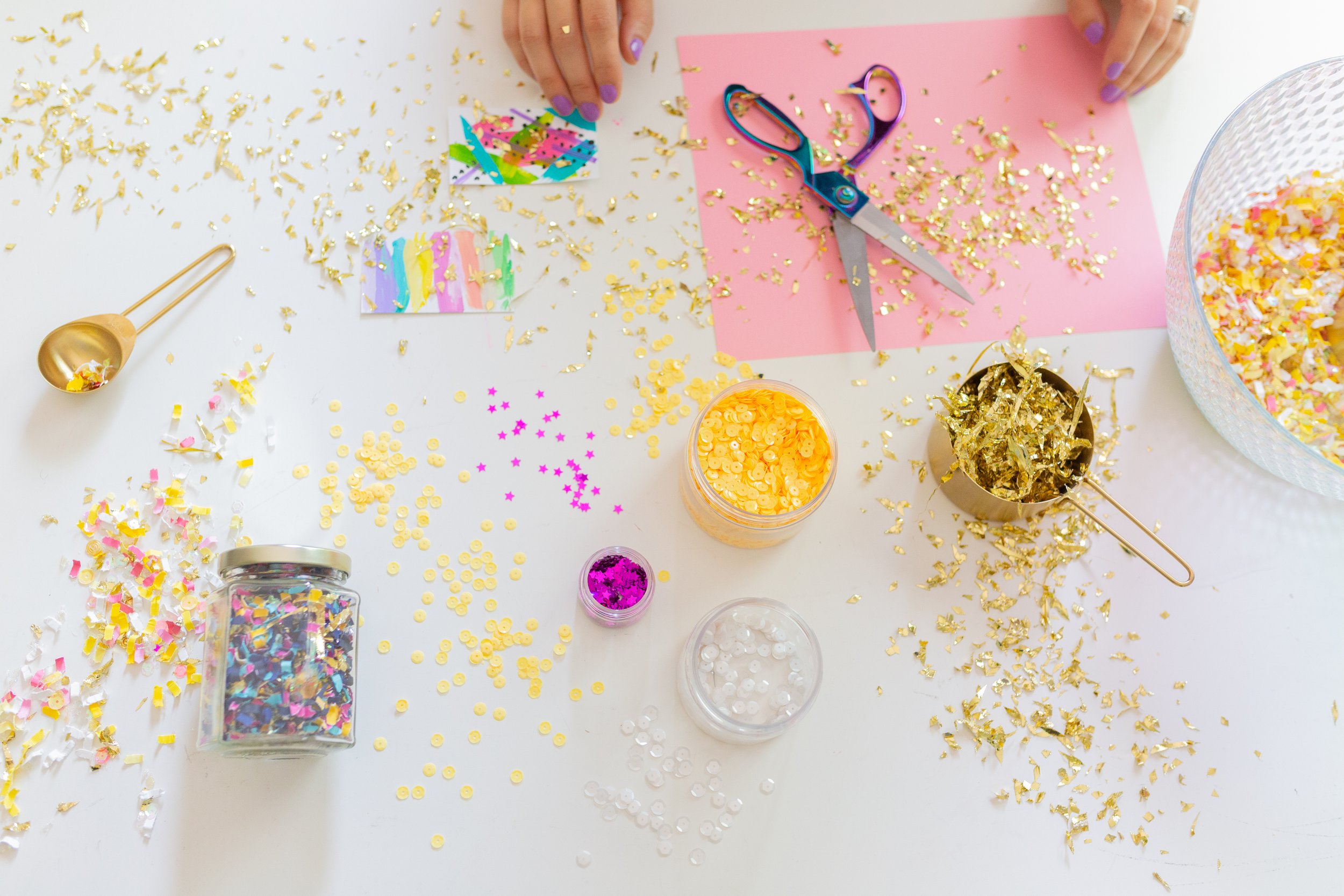
Designing Happiness
a series for health, home, and heart
The Three Pillars
Happy Health
Do more of what feels good.
Happy Home
Surround yourself with joy.
Happy Heart
Fill your heart with happiness.
Health
❤
Home
❤
Heart
❤
Health ❤ Home ❤ Heart ❤
Why Happiness Matters:
Happiness is inspiration. It’s creativity. Magic. Confetti vibes. Positivity. Hope. It’s more than just a mood or an emotion — it’s a philosophy and a state of being that encompasses everything it means to survive live a fulfilling life and thrive. It’s what makes us feel good. It’s what makes us do good. And let’s not forget there is an actual science to happiness, too. (For real life.) Certain chemicals in our brains are what allow us to feel the sensations related to “happy,” and there are things we can do to optimize our bodies for joy.)
Bottom line? Being happy is essential for our overall well-being, both physically and emotionally.
“Hi! My name is Jessica and I’m kind of a mess. :) Real talk…my life may be filled with color and confetti, but I also know what it’s like to battle anxiety and depression and stress and overwhelm on the daily — that’s why I am so passionate that now more than ever it’s crucial to really take the time to celebrate even the smallest of moments. Because despite all the bad, there are still so many amazing and wonderful things to be grateful for. And I just want to help spread so much hope in this world…one little beautifully messy piece of happiness at a time.
(Um, who’s mess is this?)
P.S. You can read more of my health & happiness journey story here. But this is about you, not me.

Now for the big stuff:
Are you happy?
(Whoa.)
I want you to sit with that. Really think about it.
While I think (at least I hope) that if you’re reading this it’s because you love all the color and magic shared around these parts, can we step back for a minute and chat about what happiness is/means, because admittedly it’s not all just sunshine and rainbows.
Most of the time I consider myself a pretty happy person, but does that mean I never get sad or depressed or anxious? Does that mean there is nothing I would change about my life? Does that mean I have a smile plastered on 24/7 and I literally throw confetti at random passerbys on the street?
Nope, no, and no some more. (Although I wish I could randomly throw confetti at strangers sometimes. 😅)
Of course this then begs the question: what the heck does being happy really mean?
What does it mean to be happy?
-
While we could probably debate the point forever, let’s just agree right up front that happiness is personal and subjective.
I mean I can say with a high level of certainty that spiders make me quite unhappy, but who knows — you may love the terrifying cute(?) creatures. My point is, what makes me happy might not make you happy and vice versa, and that’s A-OK. In fact, it’s downright awesome that we’re our own unique selves.
We’re fluid creatures, always changing and evolving, so it makes sense that a state of our being is also fluid. But — for the sake of context — I do think it’s important that we have a way to measure happiness on some type of mutually understood level so we can start on the same page. Sound good?
I’ve done a lot of research and thinking on the subject (and I could be convinced of different interpretations), but ultimately here is one of the simplest methodologies I’ve found when it comes to measuring happiness:
Happiness is when you feel good about yourself without needing anyone else’s approval.
Let that sink in for a minute. And really be honest with yourself if this is something you think is true for the various aspects of your life you might be feeling insecure in. Are some of the things you think make you happy really based on feedback from others? Do you feel outside forces have to “approve” of or influence your choices in order for them to be relevant or valid? (And yes, things like the number of friends/likes/comments you have on various social media platforms count as outside influence!)
👉🏻 When it’s just you, by yourself — left with your own thoughts & feelings & actions — are you happy with who you are deep down inside?
I, for one, can say I MOSTLY don’t feel the need for anyone’s approval to do my thang, but sometimes I definitely have to check myself when the anxiety/fear/overwhelm/self-doubt/comparison starts to creep in. I have to remember it’s a journey, not a destination.
-
I’m also going to let you in on a big secret (that I already sort of spilled the beans on): being happy doesn’t mean you’re never sad. Or that you have to smile 100% of the time. Or that you you are always confident and never have self-doubt or stress or anxiety.
Being happy is more about how you react to situations and choose to frame them. Without knowing the bad, how could we recognize the good, right? So yes, there are going to be some things you unfortunately just have to endure whether you like it or not, but it’s up to you how much you’ll let these things define you and your happiness.
Happiness is not about being perfect; it’s about recognizing that being happy is worth pursuing despite all the challenges life throws your way.
If you really want to get down to it, happiness is not just a feeling; it’s a mindset and an indicator of self-confidence — trusting yourself enough to know you can find a way to thrive and hold onto hope in any given situation.
-
In a time when social media / instant (plus constant) communication are second nature and we are particularly overwhelmed with all the outside “noise” going on out there, I think it is extra important to know that your happiness should never be tied to or dependent upon anyone else. I once read that “happiness is an inside job,” and I really do believe it should be based on individual self-reflection. That’s not to say others can’t or shouldn’t help amplify your happiness (in fact happiness has a cascade effect that we should aspire to propagate), but you shouldn’t rely on them for your own individual well-being. (And even though this should be quite obvious, I’ll add a caveat to say that your own happiness shouldn’t negatively affect anyone else — i.e. If it makes you happy to say rude or harmful things to people, I think it’s time to re-evaluate some life choices.)
Just remember that while happiness is a personal journey, having relationships with other humans is part of that journey, too. Unless you’re a recluse and can live off the grid in some isolated cabin where you eat wildflowers and fashion clothing out of leaves and mud without any modern conveniences, chances are you need to interact with others. Happiness breeds happiness (just as negativity breeds negativity), so ditch as many of the bad vibes as you can.
Check in with your feelings.
Like most things worth having, happiness can take some work to maintain through consistent & thoughtful action. Now that you know a little bit about what happiness is (and isn’t), it’s a good time to ask yourself two very important things:
1. What makes me happy?
2. What makes me unhappy?
More big stuff.
And it can for sure be overwhelming to think about everything all at once, so I recommend starting with various aspects of your life separately. (Work, home, relationships, finances, etc.)
Focus first on feelings rather than physical things (i.e. I want to feel safety and comfort vs. I want a million dollar mansion.) Spoiler alert: sometimes the things we think will make us happy aren’t the things we’re truly looking for.
Once you master the types of feelings that can make you happy you can then focus on how to turn those feelings into physical, tangible representations and goals.
Remember that the answers to these questions will (& should) be constantly changing and evolving depending on your circumstances or stage of life, which is why I suggest asking yourself them regularly. Heck, if you asked yourself these two questions every morning, imagine how it might frame your entire day: Would you focus more on the things that make you happy? Would you be more motivated to change the things that make you unhappy? Because that is the beauty of this entire thing…you can design your own version of happiness. That’s right folks, you can actually make happy!
Easy peasy, right? 😏
(Don’t worry, though — I’m here to help! I even have a handy workbook for you at the end!)
A few last reminders/disclaimers before we get to all the fun:
Know that I am in no way perfect and I still have to work on this stuff just like everybody else. But I have put all of the info I’m going to share into practice, so I know it works!
A LOT of info is coming at you, so it might seem overwhelming at first. Take things a little at a time and don’t feel you need to do everything all at once. (I certainly don’t!) Just tuck some ideas away for when you’re ready.
Only use the things / info that speaks to you personally, but also don’t be afraid to try something new (especially if you’re not getting the results you desire.) You know yourself best, but please consult a doctor or licensed professional if you feel you need additional help or support.
Health
Health
Do more of what feels good
Health plays a crucial role in designing your version of happiness. If you don’t feel well on the inside, how can you feel well on the outside? Taking care of yourself is like creating a strong foundation for all the joy and magic you’ll get to sprinkle into your life. Let's dig into why prioritizing your health is key to living a vibrant and fulfilling life! ⤵
We Are What We Consume
It’s totally true that we are what we eat, so if we eat bad things, we tend to feel bad. If we eat good things, we tend to feel good. Pretty simple science.
So my first tip for managing stress and overwhelm in your life is to address what you put into your body. (In my world, caffeine, alcohol, sugar, dairy, most grains, and processed foods are no bueno.) Now I am not a doctor or nutritionist so I won’t get into individualized diet plans, but I know from personal experience just how important cutting out the junk is, and there is plenty of research to support the food-mood connection.
Let’s keep it real, though – changing our habits is hard, especially when it might take more time (and maybe money) to do so. But if I’ve learned one thing in this life so far, it’s that feeling healthy and happy is an excellent reason to invest in yourself. Until I found myself completely overwhelmed – both physically and mentally – by not feeling in control of my mind + body, I didn’t quite realize just how much what we put into our bodies affects how we feel, both inside and out. But now it seems oh so obvious, no?
Eat good, feel good, do good. Rinse and repeat.
I will be the first to admit I am in no way perfect, and I constantly have to remind myself of all the things I’ve written about here, but in a strange way I was lucky that I once felt so completely sick and awful, as that was a really strong motivator to drastically change my habits. I don’t ever wish anyone to have to feel that way, though, so if I can offer some ideas for prevention, I’m all for it! Sometimes we don’t even know how sick we really are until it’s too late, so making changes even when you think you feel fine can turn out to be greatly beneficial in the long run.
While I hope these tips and tricks can be used as a guide, it is important to note that every single person is different. Just because something works for me, doesn’t mean it will work for everyone, but I really encourage you to listen to yourself and find your own balance. I am not a doctor, nor is any of the information contained on this site meant to be professional advice, just my two cents thrown in the mix.
Tips for living a healthier life:
Create A Morning Routine
Every day is a new opportunity to start fresh and make changes, and the way you start your day often dictates what will follow.
Creating a morning routine that sets you up for optimal success is essential to developing healthy habits.
What you include in your morning routine can (and should) vary depending on your bigger goals, so feel free to try new things until you get your groove.
-
One of the simplest things you can do is just start really paying attention to food & product labels and the list of ingredients. You’ve probably heard this a million times by now, but most of the time if you can’t pronounce something, it probably isn’t great to be putting into your body. If you don’t know what all the ingredients are in something, look it up to see what it is so you can make more informed choices based on what something is, where it comes from, and what it does for your body.
-
You will always find differing opinions on just about every single subject, so I highly encourage doing lots of your own research before deciding what is best for you. Read the good, read the bad, and try to make an informed decision on the proposed risks vs. benefits.
-
If you really plan to change your lifestyle, you need to be committed to making changes for the long haul. Only you know how bad you want to change and how committed you are willing to be. Is it more expensive to eat healthier? Seemingly, yes (although there are some caveats to this point!). Is it more time consuming to prepare your own food fresh than grabbing some fast food? Absolutely. Is it hard to make time to exercise a few times a week? For many, sure is. But you have to decide for yourself if your health & overall well being (and maybe that of your entire family) is worth making a few sacrifices. Think about your current habits that you set aside time and money for (shopping spree? watching a favorite tv show every week? going to the movies? eating out three times a week?) and evaluate how you can make adjustments to accommodate new ones.
-
There is no “quick fix” for health, so you need to make sure you can see it through to really start feeling and seeing the benefits. Is it hard? It can be. But the more you stick with eating fresh, the less you crave the sugary, processed, chemical-laden foods and prefer things that are natural, flavorful, and nutritious. The more you stick with developing healthy habits the more you look forward to them as an integral part of your life. And the more you become aware and informed of the things around you, the more you feel in control of your own happiness and well being.
Manage Your Daily Stress
Once your day gets started, it’s easier to get sucked into the craziness of it all. For a lot of us, time is not always our own — demands of a job, household, family, etc. can pull us in a million different directions, so it is important to have little things to help manage our stress so we can best foster inspiration & creativity (and of course happiness) by staying calm and relaxed. (Easier said than done sometimes, I know, but continued effort adds up!)
Create An Evening Routine
Just as having a morning routine is important to setting up your day, having an evening routine allows you to decompress, unwind, and actually get a restful sleep. (We all know how important sleep is, right?)
Again, your evening routine should be based on the things that relax you the most
Home
Home
Surround yourself with joy
Creating a space that reflects your unique version of happiness is like painting with the colors of your soul. A happy home is not just about the furniture and decor; it's about infusing everything you’re surrounded by with love, joy, and comfort. It's the little details, the cozy nooks, the bursts of color, and the personal touches that create a happy atmosphere, which in turn allows you to access deeper inner happiness. Let’s explore all the ways to surround ourselves with joy. ⤵
Psst…the word home in this context simply means your surroundings.
It’s true…our environment has a huge affect on our mood and emotions
Yes, this includes your physical home, but it really can mean any space that you spend a lot of time — your house, a room, your car, a cubicle, an office. When thinking about creating a happy “home,” you want it to be a place to feel safe; your creative sanctuary or happy haven. If you want to get particularly abstract, your physical body can also be considered the home of your mind & spirit, so your clothes, products, and accessories should also feed your happiness using similar principles.
Experience the Details
Earlier we talked a bit about what happiness is/isn’t, and one of the things I hope you gleaned was that happiness is an experience. It’s not just one thing, it’s a culmination of thoughts, feelings, and emotions that generally stem from some type of positive encounter. (An idea that many successful brands understand.)
You want to focus on little things that make you happy and pay attention to detail. Everything from the color you choose to paint the walls to the scent of the candle you have burning and the type of music you have playing, to the taste of the drink you are sipping and the feel of the fabrics you come in contact with make a difference to the overall experience.
Designing for the senses:
An experience usually engages most (if not all) of our senses, including smell, sight, sound, touch, and taste, so that is something to keep in mind as you go about creating your space.
-
Think about using candles, essential oils, room sprays, and incense.
-
Think about the colors you use, the art you choose, statement pieces you can include, plus all the other decor elements you get to look at.
-
Think about accenting (or drowning out) the ambient noise in your space by playing music, adding a fountain, or maybe even using a nature sound machine.
-
Think about the more tactile elements such as fabrics, blankets, pillows, and furniture.
-
Think about having tasty drinks, snacks, mints/candies, and/or gum readily available.
Color Me Happy
In the past I’ve talked about color psychology & how much color can affect our moods, but it is worth mentioning again here.
The colors you choose to surround yourself mean something, and if you want to be extra intentional with making a happy home, you’ll want to check out this post (where you can even get a free color chart download!)
Always remember:
Feelings First
Before you can decide how to create a happy experience in your home, first find what emotion(s) you want to feel when you’re in the space (as this will affect the specific design choices you make). Do you want to feel calm? Energized? Loved? Motivated? Creative? If you have multiple rooms/spaces, each one might even have a different vibe.
As an example of how art & mood are connected, a short story:
Once I wanted to paint something colorful for our bedroom. As I began working, something came up that got me all frazzled, so the resulting painting turned out, well, frazzled. When I hung it in our room, I couldn’t sleep! (For realsies.) So I went back to the canvas on a calmer day, and managed something much softer that allowed for sweet dreams. Much better. :)
My point is this: pay attention to how the things you choose to surround yourself with make you feel. (In fact, this is a good general rule for life, not just decor!)
Design tips:
-
If you’re feeling overwhelmed, focus on one room or section at a time if you need to. (Maybe start by creating a happy bookshelf, or a happy nook if that seems easier to manage.)
-
Constantly ask yourself “how does this make me feel?” If the answer is anything positive, know that matters more than if it “fits” with the room or is perfectly styled.
-
Accept that we go through many seasons of life — things can (and will) change, so your space should change to suit your needs and desires, too. Maybe you just need to switch up some throw pillows, or maybe you need an entirely new look. Things that once made you happy may no longer do so, which means it’s time to let go.
Heart
Heart
Fill your heart with happiness
True happiness isn't found in material possessions or fleeting moments of surface level fun; it resides deep within ourselves, waiting to be unleashed. Embracing introspection and fostering a thoughtful heart allows us to connect with our true selves, understand our desires and values, and pave the way for a life filled with authentic happiness. Let’s dive right in. ⤵
We’ve covered the more surface level aspects of building a happy life, so now it’s time to get to where the truly deep, transformational stuff happens.
(Where true happiness comes from.)
5 Tips For Designing A Happy Heart
1. Be nice (to yourself and others)
Why?
Because. (Hah – do I really need to explain this one?)
In all seriousness, being nice is actually one of those things that is so easy to forget how simple it is, but it feels good, it makes other people feel good, and it’s just the right thing to do.
Sure, we all have bad days, but that’s no excuse to take it out on others (or yourself) in a negative way.
-
Own your mistakes — we all make them. It’s unrealistic to think we can be perfect, but it is realistic to become more aware of how we act when we do mess up. Say you’re sorry. (And mean it.)
-
It’s human nature to judge other people. We all do it, even if we don’t want to admit it. But there is a difference between making a snap judgement (that you only assume is the truth) and taking the time to understand a situation from the other side. Courteous, productive, and constructive dialogue is essential, but uneducated, cruel, or mean spirited accusations usually do more harm than good. By trying to avoid chiming in on topics you really aren’t qualified to chime in about, it will prevent a lot of unnecessary drama.
-
How many times have you heard someone say something along the lines of, “Your shoes are the ugliest things I’ve ever seen. I’m just being honest.” While I do believe honesty is definitely something to live by, that doesn’t mean you can use it to excuse any potentially hurtful thing that pops into your head and out of your mouth. I think sometimes the ‘I call it like I see it and I’m unapologetically me’ type mentality is glorified in a way that makes people forget their actions still affect others. There is a way to be truthful and constructive while still being considerate. In this case I prefer to go by the old adage: if you don’t have anything nice to say, don’t say anything at all.
-
Sort of as a follow up to the last point, someone else’s lack of nice-ness is also not an excuse to lose your own temper. Usually people who act out and have no filter are the ones who need a little bit of extra nice in their lives the most. You can’t control them, but you can control yourself. Kill ‘em with kindness.
-
Take a step back and a deep breath and evaluate the situation from all angles.
How?
2. Stay committed
Why?
Commitment is an integral factor to your success, in happiness and anything else for that matter. Commit to yourself, commit to your ideas, and commit to those counting on and/or rooting for you. Saying you’re going to do something — and then actually doing it — is a super powerful feeling. (Remember we talked about self-confidence being at the root of happiness? #fullcircle)
Now this means you’re going to have to put some kind of effort into the things that will make you happy (changing your diet, saving money, bettering yourself, etc.), but that makes the reward so much greater. It’s easy to be all talk and say you’re going to do something, but the follow through is even more important than the end result.
3. Practice balance & harmony
Why?
Think of happiness like the fulcrum of a scale — you need things on both sides to even it out. Whether too much or too little, extremes on either side of the scale often put unnecessary pressure on a situation. This pressure can come in all sorts of forms: pressure from others, from social media, from yourself, from the clock…
Balance — and in turn, harmony — is all about choice. Make choices that align with your life goals, but also don’t beat yourself up if there are a couple exceptions to the rule.
-
Remember that things happen in their own time. Rushing through life is not really living it.
-
Find your WHY. Don’t lose sight of what truly matters.
-
Aim for slow, steady growth.
-
Slow down. Be present.
-
Inhale + exhale. It’s all going to be okay.
How?
How?
-
Less stuff means there is less to manage (physically and emotionally). Simplify things to only the essentials and your focus can be more clear.
-
A common excuse for not doing something is often “I don’t have enough time.” Timing is all about priorities, though, so how you choose to prioritize things has a direct correlation to your level of commitment.
-
Practice gratitude and acceptance and know that things can change, both for better or worse, so there is no use trying to change things you can’t control. Push yourself or your idea to be the best version it can be, but do so in a way where it is ultimately about growth and evolution.
-
Focus on both the details and the big picture, but don’t let either overwhelm you.
-
Know when to look to others for support and encouragement, but also know when it’s time to take a step back and regroup with your own thoughts.
-
You already know I’m a firm believer that happy people should still sometimes feel sad. In fact, I welcome it. Feeling sad or upset or angry is not a sign you’ve failed at happiness. (In fact, a good ugly cry now and then is quite cathartic!) Feeling all sorts of emotions is a good thing — it means we’re human, it gives us depth. The key, however, is not to dwell in sadness or self-pity or depression or anxiety or any other “bad” feeling for too long. Experience it, accept it, and then choose to move on.
4. Keep true to you
Why?
In order to be unique, authentic, original and happy with YOU, you need to spend more time working on your own stuff than focusing on what other people are doing. In an age of information overload, social media, and reality tv it’s super easy to get too caught up in the lives of others. Focus on your own stuff first and foremost. It’s awesome to inspire others and be inspired, but put your own spin on things. Don’t be afraid to think differently. Don’t assume you need to listen to what others tell you if it doesn’t feel right.
How?
-
Just like learning to dial the noise is important when looking for harmony and balance, knowing when to silence it completely is the next big step. Ditch as much negativity as you can, whether it’s in the form of social media, toxic relationships, or self-deprecation.
-
Truth builds confidence so it makes sense that in order to be truly happy you need to be honest with yourself. To figure out what kinds of things you’re insecure about, start by looking at the things you’re afraid of or get defensive about — chances are these things will speak to the heart of a deeper truth. Don’t be afraid to dig.
-
It’s true it can be really helpful to surround yourself with positivity and amazing things can happen from teamwork and collaboration — but only if it is a true melding of individual personalities that each bring something unique to the table.
-
Emotionally and physically. Understand what you surround yourself with and what you put into your body all affects you. Toxic people, toxic situations, and toxic foods have a way of seeping into your pores and creating a lot of ugliness. Don’t let that happen.
-
Literally and figuratively. Understand that anxiety, pain, depression, and stress are ways your body communicates with you.
5. Take things one step at a time
Why?
In this moment, right now, you are the sum of every choice you have made up until this point, and the choices you make from this moment forward will determine what happens next. Most things worth doing take time — don’t rush them. In fact, let’s try to ignore the pressure of time altogether. I mean what does time really mean, anyway? It seems we’re always in a hurry and we want things fast and cheap and it’s too easy to rush through life. Instead be focused on building a solid foundation that will sustain you long term. There’s no “quick fix,” but there shouldn’t have to be.
-
We can all take a page out of Nike’s playbook with this one.
-
Ok, so sometimes maybe it’s easier said than done to make something happen. By creating a plan or to-do list for yourself it can help to break what might seem like a too big task down into smaller, more digestible pieces.
-
It’s easy to find excuses. Like, really easy. “I’m too tired. I’m too busy. I don’t know how. My car is out of gas.” Try reframing your thoughts to eliminate any possibility of excuses, and instead go into problem solving mode.
-
Even moreso than being consistent, being persistent in your pursuits will serve you in the long-run. Never stop trying; never give up.
-
I’m all for big dreams. Huge dreams. Gigantic dreams. But big dreams will always be just that — dreams — if you don’t have some sort of practical way to make them happen.
How?
Free Workbook
❤
Free Workbook ❤
Design your version of happiness
Now that you have the pillars & framework, to help you on your journey we’ve created a free workbook to go along with this series. Simply download the digital file below, print it out, and get to work designing a life you love. ❤
What’s Next?
Ok, that was a boatload of information to throw your way, and I know it can feel overwhelming. I suggest coming back here now and again to re-read sections until they stick.
If you found yourself nodding and “yes!”-ing and thinking deeper throughout this post, but still aren’t quiiiiiite sure where to start, consider following these steps:
Download and print the workbook above. (Don’t just think about it, do it! It’s free, there’s no excuse. 😉)
Work through each section of the workbook, taking your time to fully think/reflect/plan. Print multiple copies (or simply write in a notebook) to tackle various aspects of your life one at a time, if necessary.
Come back regularly to check out more resources for topics that will relate to our three main pillars.
Engage by asking questions and sharing your own ideas/tips/techniques on the socials or by contacting us below.
Don’t forget to have fun. 😊
Questions? Comments? Want to chat about the meaning of life? Need a virtual hug?
I won’t leave you hanging, promise. Simply drop me a line. :)



